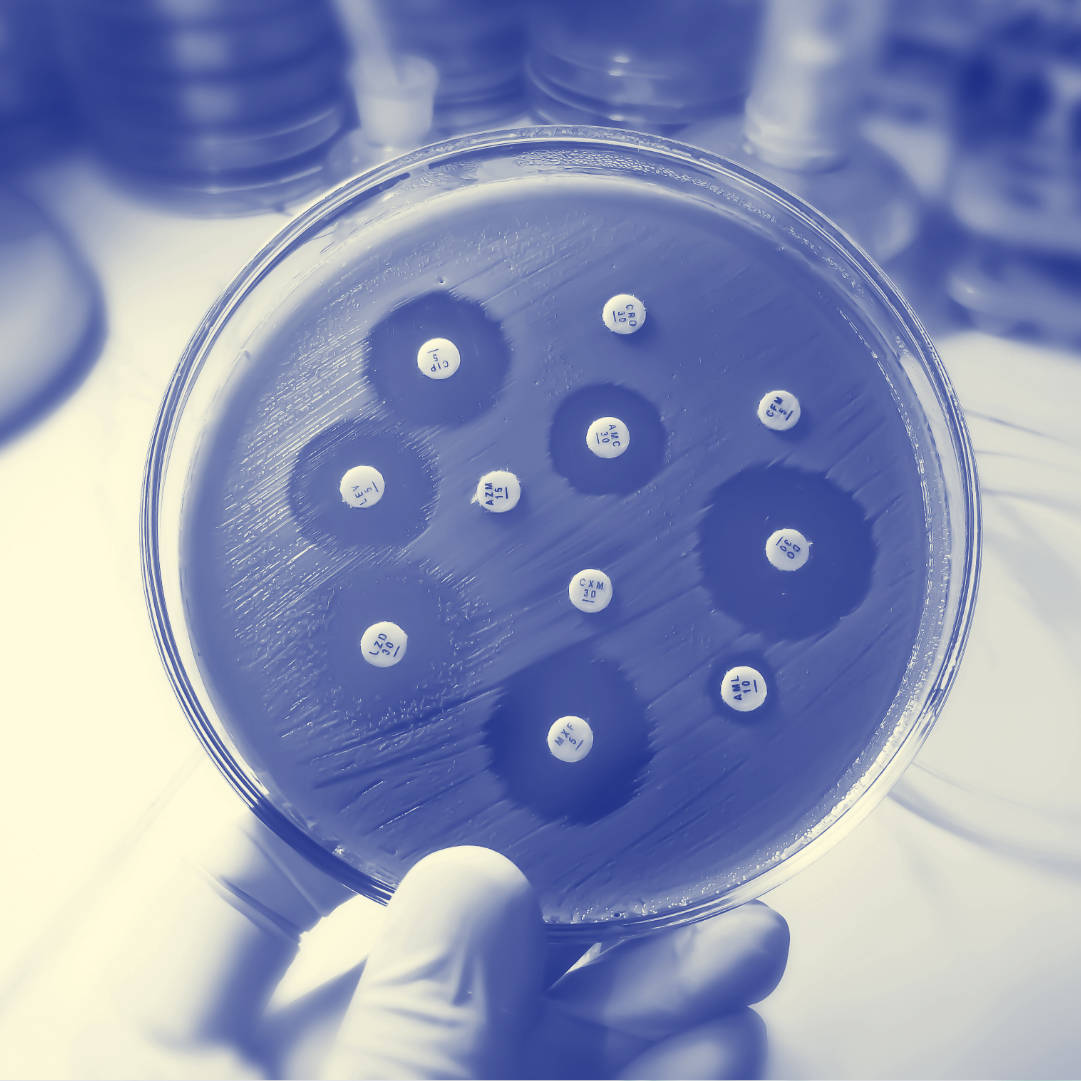
 Back to homepage
Our offer: Antimicrobials
Back to homepage
Our offer: Antimicrobials
Experts in the fight against infectious diseases and epidemiological monitoring
Aware of the major issue represented by antibiotic and antifungal resistance, as well as the essential need to develop new antimicrobial strategies, Smaltis and its founders have been combating this scourge for over 15 years. Through its R&D work and innovative tools, Smaltis is committed to sharing its expertise in the field, assisting you in the development of your anti-infective candidates, and participating in epidemiosurveillance studies in the One Health context.
Enhance the value of your products by entrusting them to recognized experts
Whether your products are derived from chemistry, nature, microorganisms, bacteriophages, accelerate and ensure their development by entrusting them to our laboratories:
- Antibiotics
- Antifungals
- Antimicrobial peptides
- Strains with antimicrobial properties
- Bacteriophages
- Vaccines
- Antibodies
- Hygiene and disinfection products
- Any other compound with antimicrobial purposes
A comprehensive and precise offering to support your anti-infective programs
From research phases to epidemiosurveillance studies
| DEVELOPMENT STAGES |
1
RESEARCH AND SELECTION |
2
RESISTANCE RISK |
3
EPIDEMIOSURVEILLANCE |
| YOUR NEEDS |
Screening and selection of the most promising candidates, |
Anticipation of resistance that will emerge in clinical isolates, |
Monitoring the evolution of the proportion of microorganisms resistant to a molecule and the associated resistance mechanisms |
| OUR SOLUTIONS |
Determination of antimicrobial efficacy and spectrum of action, |
Study of resistance evolution through successive passages, |
Centralization and identification of strains, |
Our promise: expertise and know-how to validate and secure your developments
The development of antimicrobial products requires expertise and rigor, skills recognized at Smaltis. Our researchers accompany you with tried and tested solutions, unique tools, and informed scientific advice to overcome challenges in finding alternatives to existing antimicrobial solutions. From research stages to epidemiosurveillance studies, we work hand in hand with your teams to obtain reliable data and address the constant evolution of microorganisms.
The founders and researchers at Smaltis completed their PhDs in the field of antibiotic resistance, particularly in understanding resistance mechanisms employed by the bacterial species Pseudomonas aeruginosa. In this context, they have conducted numerous research projects contributing to the advancement of knowledge related to the fight against infections and antibiotic resistance.
The researchers at the Smaltis team are among the authors of over 50 scientific articles published in international journals related to the development of antimicrobials and the study of resistance mechanisms.
Since the beginning, Smaltis has been building specific proprietary mutant banks in various species such as Pseudomonas aeruginosa, Escherichia coli, and Klebsiella pneumoniae, presenting different and characterized antibiotic resistance profiles in perfectly controlled genetic backgrounds. These strain banks facilitate the understanding of known resistance mechanisms and help anticipate the adaptation of microorganisms to future antimicrobial molecules.
Smaltis and the Technological Research Institute Bioaster have joined forces in an exclusive collaboration to offer a unique tool to facilitate the development of new antibiotic molecules by predicting their antibacterial mechanism of action. An offering is currently in development… stay tuned!
For over 15 years, members and founders of Smaltis have surrounded themselves with experts in the field of combating antibiotic resistance, benefiting from strong scientific support, such as the National Reference Center for Antibiotic Resistance led by Professor Katy JEANNOT and the Biological Resources Center of the Jean Minjoz University Hospital in Besançon. To maintain its expertise, Smaltis regularly attends specialized conferences in the field to stay informed about advances and key issues.














